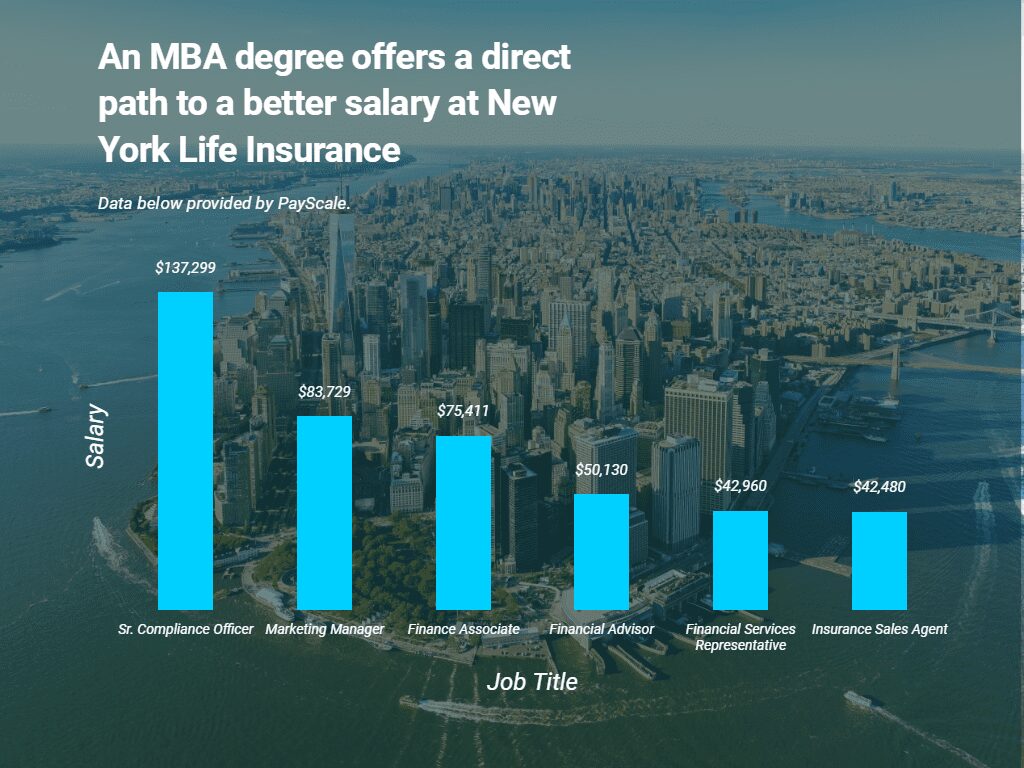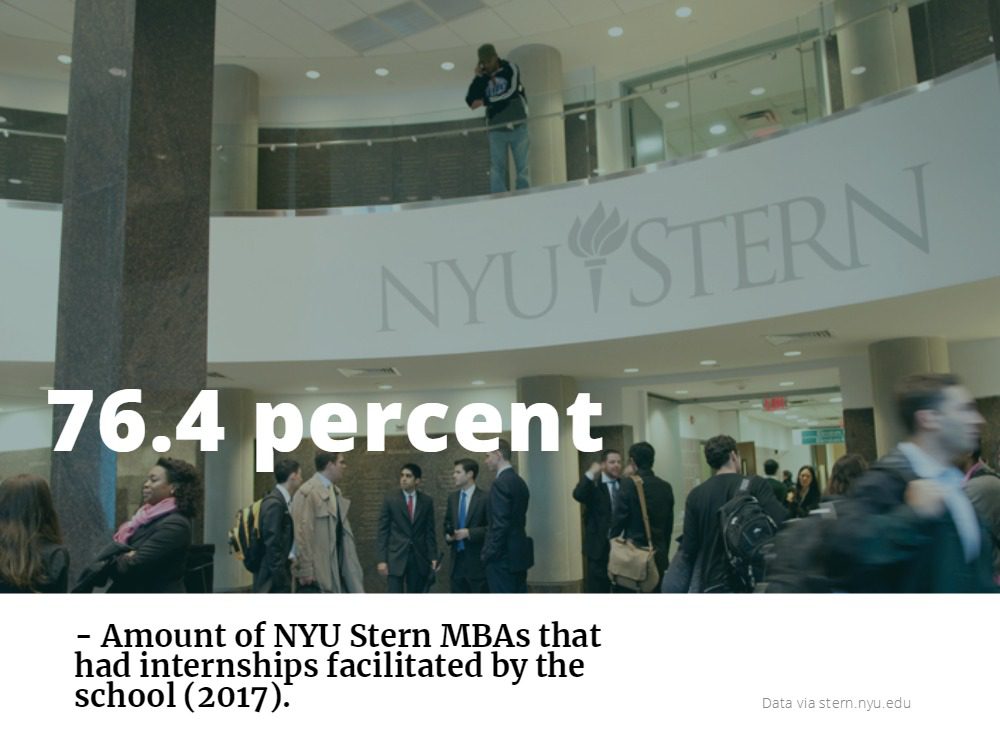Search results for where should I work:
Should You Get an MBA in Philadelphia or Baltimore?
The Mid-Atlantic region remains a major destination for education, work, and living. The most densely populated region in the U.S., the Mid-Atlantic is home to a third of the 100 highest-income cities and some of the most esteemed universities in the world.
Continue reading…
Which Business School Should I Attend? NC State or South Carolina
North Carolina’s Research Triangle Park area is a great place to live and work. It’s one of the nation’s top areas for science and engineering jobs, and it’s home to many great universities. It sprawls across three cities—Raleigh, Durham, and Chapel Hill—and is a booming area to live, work, and go to school. Columbia, South Carolina could also be included in the Research Triangle because it’s also home to a top university, and that’s what we’re taking a look at today.
Continue reading…
Denver or Portland: Which City Should I Choose?
So you’ve narrowed down your list of ‘must-haves’ for your MBA program and possibly your future roots. You need beautiful weather, dozens of options for outdoor fun, nightlife, food and drink, an innovation economy, and a competitive cost of living. You’re down to two: Portland and Denver. How should you choose? Here we’ll try and offer you a hand by comparing Stumptown and the Mile High City on a few important points.
Continue reading…
Pick Your City: Should You Get an MBA in Seattle or Vancouver?
The U.S. vs. Canada? No, we’re not talking about hockey (this time)—we’re discussing MBA programs. Where should you earn your MBA if you have to choose between Seattle and Vancouver? What are the benefits of each city, how much will each location cost, what can you expect in terms of job opportunities, and what MBA programs are available in each city?
While at a glance, Seattle and Vancouver seem very comparable—offering similar big-city experiences for residents—when you dig a little deeper, the differences are striking.
In our “Pick Your City” series, we break down two similar locations to help you choose your best MBA program. Continue reading…
Seattle or Portland: Which City Should I Choose?
The Pacific Northwest draws an enormous pool of talented people to visit, to live, to work and to play—for good reason. The region’s high concentration of startups and large, established companies appeal especially to current or recently graduated business school students. All the while, a thriving cultural landscape of tech, art, music, food, drink, and natural beauty make the area on par with Silicon Valley as a great American destination.
Portland and Seattle are clearly at the head of the pack when it comes to the most desirable Pacific Northwestern cities. In another installment of ‘Which city should I choose?’, we will compare the two in hopes of helping you narrow down your decision.
Seattle or Portland: Job Markets
Seattle and Portland are both major port cities in the U.S., and each are home to heavy industries like steel and aeronautics. However, both cities are known most recently as hubs for clean energy, tech and retail, drawing professionals from all over the world to work in these fields.
The Portland region has even dubbed “The Silicon Forest” for its abundance of tech and other types of startups. According to a recent report on OregonLive, tech employment in Portland expanded by 3.1 percent between December 2017 and the end of 2018; the fastest growth rate for the state in several years. While the statewide annual average income across all industries is $53,000, the tech average is $115,000 per year. Furthermore, the past year has seen the amount of startup funding invested new firms double, to hit the highest rate since the dotcom bubble.
Portland itself has an exceptionally low rate of unemployment, and a job growth rate that is 7 percent higher than the rest of the country. Along with tech/IT jobs, Portland offers numerous opportunities for related jobs in manufacturing, along with healthcare, retail and education. It’s also interesting to note that Portland is 4th in the country for telecommuting.
Fortune 500 company Nike (founded in Portland), Adidas, Dr. Martens, Columbia Sportswear, and Keen all have headquarters in Stumptown, and Merrell and Under Armour have design studios here. The thriving restaurant, coffee and microbrewery scenes should not be overlooked either, as these are some of the most prevalent of Portland startups.

Sports apparel manufacturing giant Nike has called the Portland metro its home since its founding in the late 1970s.
Seattle too, boasts a strong and diverse job market. According to Anneliese Vance-Sherman, a regional labor economist for the State of Washington, “It is noteworthy that at this point … all industries are seeing job growth. We are at a mature point where the benefit of growth is being felt in all industries.” According to the state’s Economic Security Department, tech, online retail trade, professional services (such as engineering and construction), and healthcare and manufacturing are all growth fields.
Seattle is home to a high number of Fortune 500 companies, and one that immediately springs to mind is, of course, Amazon. Nintendo, Microsoft, T-Mobile, and Expedia also have headquarters in the Seattle metro, in addition to retail giants Nordstrom and Costco, and global aerospace company Boeing. If you’re seeking a role in the management, tech or finance end of the coffee business, Seattle is also the place for you. The city is home to Starbucks and Seattle’s Best, as well as thousands of smaller producers of the beverage.

Seattle or Portland: By the Numbers
BestPlaces.net reports that Portland’s household income, on average, is 23 percent less than Seattle’s, but is 6 percent higher than the national average. Also, Portland is 27.5 percent less expensive overall than Seattle, with housing costs at almost 44 percent less. Numbeo’s comparison of the monthly cost of living in each city reveals that for $5,000 per month, one can maintain the same standards for living in Portland that would require $6,000 a month. Here is a further look at some of the numbers, side by side.
- Median income: $115,000 in Seattle, $80,000 in Portland
- Unemployment rate: 3.1 percent in Seattle, 3.5 percent in Portland (compared to 3.9 percent overall in the U.S.)
- Future job growth: 44 percent in Seattle, 42 percent in Portland
- Average Rent: $2,000 for a one bedroom in Seattle, $1,500 in Portland

The search for affordable housing in Seattle is among the toughest in the U.S., with average home prices in King County soaring over the past five decades. The Seattle Times reports that since 2014, Seattle metro home prices have grown at double the national average.
Seattle or Portland: Culture
Many visitors to both cities have observed that they are overall very similar culturally, Portland tends to be a bit more quirky—there’s a reason for that “Keep Portland Weird” mural and the popularity of Portlandia. Street performers and food trucks characterize Portland’s streets, and while Seattle has its fair share of street life, many say it feels a bit more “buttoned up.” Portland is also smaller in population at 650,000 to Seattle’s 730,000 residents, as well as geographically smaller.
If live music is your thing, expect an amazing array of options in both cities. Small venues can be found in large supply in both towns, as well as bigger stadiums. Each city also is home to thriving arts scenes that include large museums and small galleries. Even without the diverse music scene, sports fans feel at home in the both cities, with Portland’s beloved Trail Blazers in the NBA and Timbers in the MLS, while Seattle’s NFL franchise the Seahawks reign supreme in the Emerald City. While the NHL is looking to expand in the Seattle metro in 2021, the loss of the Seattle Supersonics in the NBA still stings (sorry).
Both cities are wonderfully walkable, and citizens have a high consciousness of sustainable forms of energy, design, and building. As mentioned above, Portland and Seattle both have exciting, cutting edge restaurant, coffee, and microbrewery communities. Eater has published definitive guides to both cities, and the debate rages on upon which is better.
As far as getting around, Seattle offers bus and monorail transport, while Portland offers more public transit options with streetcars, light rail, and buses. Portland is also known for a high number of cyclists, which many agree is more of a prevalent transit mode than it is in Seattle.
As both cities are situated on the beautiful Pacific Northwestern coast, their options for outdoor fun are some of each place’s biggest draws. Seattle sits on the shore of the Puget Sound, and it boasts Lake Union, Green Lake, and Lake Washington for hiking and recreation. Portland too lies on both sides of the Willammette River and it’s also close by the Columbia River. Portland’s Mount Hood and Seattle’s Mount Rainier also provide stunning locations for hiking, biking, and camping. Skiiers will find more options on Mount Hood than on Mount Rainier, with more resort locations on the former.
Yes: rainfall is a fact of life in these parts, with each city averaging around 37 inches per year. This doesn’t deter most residents, however, from enjoying the great outdoors.
Seattle or Portland: Business Schools
As we’ve mentioned, the job markets in both Seattle and Portland are ripe with opportunities for MBAs. As far as places to study, the Albers School of Business and Economics at Seattle University, Foster School of Business at University of Washington, and Seattle Pacific University’s School of Business, Government and Economics are all well regarded for its MBA programs. UW Foster, in fact, is one of the most well-regarded business school’s in the world. U.S. News & World Report currently ranks it as the 7th best public business school in the U.S., and the 21st best business school in the entire country. The Financial Times and The Economist also rank the business school as one of the 50 best in the world.
Portland State, University of Portland, Willamette University, and Concordia University all offer strong MBA programs as well.
Pick Your City: Should You Get an MBA in Chicago or Minneapolis?
The American Midwest is one of the friendliest and most beautiful locations in the country. For those looking for an area that offers a balance between heavy industry and agriculture, alongside finance, education, and medicine, the Midwest is where to be. It’s also home to excellent public and private universities, including many of the world’s top MBA programs.
But with so many amazing business schools in the Midwest, where should you earn your MBA? To help you out, our “Pick Your City” series is comparing Chicago, IL and Minneapolis, MN.
We’re giving you insight into the cost of living of each city, the job opportunities, the MBA programs, the culture, and more. Continue reading…
Pick Your City: Should You Get an MBA in Charlotte or Washington DC?
If you’re looking to live on the east coast, you have your pick of cities. You could choose to live in the Northeast in New York City or down in the south in Savannah, GA. But what if you’re looking for a location in between those two? For that, you have Charlotte, North Carolina and Washington DC.
Both Charlotte and Washington DC are great places to live. To help you “pick your city,” our latest series breaks down two similar locations to help you make the best decision for you when it comes to cost of living, culture, job opportunities, and MBA programs. Continue reading…
Phoenix vs. San Diego: Where Should I Get My MBA?
With the number of high caliber business schools located out west, it may be hard to narrow down a city or region that best fits your needs as you seek your MBA. Here, we’ll take a look at two top cities for attending b-school—Phoenix and San Diego—with the hope of helping you find the best city for you.
Pick Your City: Should You Get an MBA in Toronto or Vancouver?
Should you get an MBA in Toronto or Vancouver? What are the benefits of each city, how much will each location cost, what can you expect in terms of job opportunities, and what MBA programs are available?
At a glance, the two Canadian cities are very comparable, offering similar big-city experiences for residents. However, when you dig a little deeper, some major differences arise. In our “Pick Your City” series, we break down two similar locations to help you choose your best MBA program.
Toronto or Vancouver: Cost of Living
Before we start digging down into the nitty-gritty details comparing Toronto to Vancouver, let’s take a look at the facts. When it comes to how much it costs to live in each city, which city comes out on top? According to Numbeo, it’s actually more affordable to live in Vancouver, if you can believe it.
To maintain the same standard of living in both cities, you would need $6,293 CAD in Vancouver compared to $6,900 CAD in Toronto (assuming you rent in both locations). This breaks down to:
- Consumer prices in Vancouver are 8.72 percent lower
- Rent prices in Vancouver are .18 percent higher
- Restaurant prices in Vancouver are 11.46 percent lower
- Groceries in Vancouver are 13.75 percent cheaper
Overall, if you live in Vancouver, your purchasing power is 13.41 percent higher than in Toronto.
However, a major cost of living difference between each city comes down to where specific residents live. According to data from Expatistan, a furnished apartment in the most expensive part of Vancouver can cost about 11 percent more than living in the most expensive part of Toronto.
Toronto or Vancouver: Culture

Vancouver is consistently named as one of the top five worldwide cities for livability and quality of life, and the Economist Intelligence Unit acknowledged it as the first city ranked among the top-ten of the world’s most well-living cities for five consecutive years.
But what about when you start looking at living in Toronto or Vancouver outside of how much it costs? Lifestyle, activities, and culture can be a significant differentiator for where you want to live and earn your MBA. In many ways the cities are very similar; they offer all the same essential conveniences that you would expect from any big city.
Toronto Lifestyle
Toronto is the largest city in Canada. It’s known for being the financial and cultural hub of the entire country. It has a global city vibe that’s always bustling. Think of it as the New York City of Canada. If you love the city lifestyle, you may love Toronto.
When you are downtown in Toronto, you’ll be surrounded by hundreds and thousands of people all going about their business at the same time. And speaking of business, Toronto’s salaries are the highest in the country, and there are many incredible job opportunities (we’ll talk about this more a little later).
One major selling point for Toronto is its extreme diversity. More than 50 percent of residents belong to a visible minority population group. Residents of Toronto come from all different backgrounds, cultures, and locations. It’s a vibrant community for anyone from anywhere, which can translate to some incredible food, activities, and shops
Vancouver Lifestyle
Vancouver is also a big city, but it’s a lot more laid back. People say the city has a more relaxed pace, which can mean it’s a little boring if you’re looking for nightlife. However, if you’re looking for better work/life balance, Vancouver takes the lead.
However, that also means that business can be a little slower in Vancouver. Don’t expect quite as high salaries or as many open jobs. Though there are still many companies thriving in the area, which we’ll talk about more later.
One of Vancouver’s main features is its landscape. It’s surrounded by mountains, which makes it not only one of the most beautiful cities in Canada but one of the best for outdoor enthusiasts. There are many opportunities for skiing, kayaking, hiking, and more all within 30-minutes of downtown.
We also have to mention Vancouver’s incredible public transportation. It has the world’s longest fully automatic driverless train system in the world: Skytrain. It’s known for its efficiency and regularity. There’s also the Seabus, which ferries people to North Vancouver in 20 minutes.
Toronto or Vancouver: Job Opportunities

Toronto is one of the most multicultural and multiracial cities in the world with established ethnic neighborhoods such as Chinatown, Corso Italia, Little India, Greektown, Koreatown, Little Jamaica, Little Portugal, and Roncesvalles.
When it comes to job opportunities and the economy, Toronto stands out. The city is home to the Toronto Stock Exchange as well as being the headquarters of Canada’s five largest banks (known as the Big Five). Also, many large Canadian and multinational corporations call the city home. You’ll find jobs in almost every industry from technology to design, financial services, life sciences, education, arts, fashion, business services, tourism, and more.
Some of Toronto’s top employers include:
- Accenture
- Bayer
- AIG Insurance Company of Canada
- CIBC
- Ford Motor Company
- Proctor & Gamble
- Oracle
- IMAX Corporation
- Salesforce
- Royal Bank of Canada
- Xerox
As for Vancouver, it’s consistently named one of the top five worldwide cities for livability and quality of life. And since the Port of Metro Vancouver is the third-largest port by tonnage in the Americas (beating out NYC), it offers some uniquely thriving industries, doing more than $172 CAD billion in trade with over 160 different trading economies annually. Vancouver is also a center of software development, biotechnology, aerospace, video game development, animation studios, and television production. There’s also a strong focus on lifestyle and health culture, being the hub for Lululemon, Arc’teryx, Nature’s Path Foods, and more.
Some of Vancouver’s top employers include:
- Best Buy Canada
- BC Assessment
- BC Hydro
- HSBC Bank Canada
- Fraser Health Authority
- Nintendo
- Oppenheimer Group
- SPK Consulting
- Arrow Transportation Systems
Toronto or Vancouver: MBA Programs
Both Vancouver and Toronto are home to some well-known business schools with quality MBA programs. We’ll take a quick look at the top three programs in each location.
Toronto MBA Programs
- University of Toronto Rotman School of Management: Rotman offers both a part-time and full-time MBA program with sixteen possible majors, including Brand Management; Business Design; Sustainability and Health Sector Management.
- Wilfrid Laurier University’s Lazaridis School of Business and Economics: The Lazaridis School offers both a part-time and full-time MBA program along with multiple dual-degree options with specializations in everything from Operations Management to Innovation and Entrepreneurship.
- York University’s Schulich School of Business: The Schulich School offers both a flexible part-time MBA as well as a full-time MBA. Students can specialize in more than twenty different areas, including Arts, Media & Entertainment Management; Organizational Studies; Business & Sustainability and Social Sector Management.
Vancouver MBA Programs
- University of British Columbia Sauder School of Business: The Sauder School offers both a full-time and part-time MBA program with three pre-determined career tracks in Product & Service Management, Innovation & Entrepreneurship, and Finance.
- Simon Fraser University Beedie School of Business: The Beedie School has both a full-time MBA and a part-time MBA. The school stands out for enrolling just 55 students each year and taking only 12 months to graduate.
- Vancouver Island University: The Vancouver Island University offers a 14 to 16-month MBA program featuring 12 core courses in subjects such as Managing and Strategy; Foundations of Marketing; Foundations of Economics; and Basics of Accounting and Quantitative Methods.
Where Should You Go? The Benefits of a Mid-Tier MBA
You have an MBA acceptance letter from both Harvard Business School and Cornell SC Johnson. Which do you choose?
Your gut reaction might be to choose Harvard’s top-ranked MBA program without a second’s pause. After all, aren’t business school rankings—like those compiled by the Financial Times and U.S. News & World Report—the most important consideration when choosing your MBA program?
In some cases, you might be right. If you’re most interested in reputation, then ranking is all important. However, there are many times when rankings should be taken with a grain of salt. They tell a story, but not the whole story, especially when it comes to you as an individual candidate.
Just because a specific school is top-ranked, does not mean it should be the top rank for you. Many mid-level MBA programs are just as impressive and could be a better fit for you depending on your needs.
In this article, we’ll take an in-depth look at when and why you should choose a mid-ranked MBA program over a top-ranked program. Continue reading…
Beyond the ‘Big Four’: What are the Other Major Consulting Firms You Should Know?
Deloitte, PwC, KPMG, and E&Y: Together these firms make up the “Big Four”—the four biggest professional services firms in the world. The companies offer auditing, assurance services, management consulting, corporate finance, legal services and more. It’s no surprise, that many of these companies are also ideal destinations for many MBAs. Continue reading…
New York Life Careers: What MBAs Should Know
Choosing the right job after earning your MBA is always intimidating. The degree opens a multitude of paths for professionals entering the marketplace. However, the sheer number of available options can be a double-edged sword, and it is important that b-schoolers do their due diligence to find the right company and career track for them.
For those looking to work at a company with a rich history, New York Life Insurance Company may be the right choice. Not only if New York Life one of the US’s oldest Fortune 100 companies, the company consistently makes Fortune’s list of the “World’s Most Admired Companies.” Below, we’ve laid out some of the opportunities available to MBA’s looking to work at New York Life Insurance, so that you can gauge whether it might be the right fit.
New York Life Career Opportunities
Two possible tracks for those seeking employment with New York Life: as agents, or as a member of the corporate team.
There are many options for aspiring New York Life Agents. There are entry level positions for new agents looking to grow their business and gain experience and knowledge of the field. More experienced agents are also encouraged to apply. Experienced professionals can also apply for a sales management/partner position. Those in this position will oversee the recruitment and development of sales teams.
Though opportunities for non-MBAs abound, MBAs are at a significant advantage here. Those who have completed their MBA within 24 months are eligible for the management fast-track, a program wherein select employees can advance to management within a year of being hired. These hired will take on roles as Associate Partners once they have met training requirements. It should be noted that New York Life prefers for fast-track applicants to be Life and Health licensed, have some previous sales experience, and have FINRA registrations of Series 6 or 7 and Series 63.
What Kind of Salary Should You Expect at New York Life Insurance?
The salary of New York Life Insurance agents can vary wildly, considering commission is significant portion of the career incentive. According to Glassdoor data, base-level agents can expect a total annual pay of $51,322. This includes salary (around $42,000), plus benefits, commission, and more. Of course, an advanced degree can greatly increase annual compensation, with some agents earning over $100,000 per year.

Those seeking to enter the corporate side of New York Life also have plenty of options. With over 9,000 corporate employees, there is a position for nearly every type of business-minded application. Whether you want to work in marketing and communications, technology, sales support, investments, leadership and management, or a host of other fields, New York Life offers plenty options and support.
PayScale data indicates that several MBA-level positions offer obvious lucrative benefits. The average marketing manager at New York Life, for instance, makes an average annual salary of $83,729. This is early double the amount administrative assistants and client services representatives make.

New York Life Internship Opportunities
New York Life offers several internship opportunities based on the company’s specific needs. However, the company has a couple of specific programs tailored for interns. For those with an interest in actuarial studies in their junior or senior year of undergrad, or pursuing their MBA, the Actuarial Summer Internship Program may be a desirable option. In this program, interns receive projects from each area of the company actuarial departments and work alongside full-time actuaries. They receive training in the relevant software, meeting with the other interns every two weeks to touch base. They also benefit from monthly presentations by the New York Life actuaries, and a variety of social events.
The company also offers a Summer Finance Internship Program, wherein juniors and seniors balance a real-world work environment with weekly seminars and mentoring support from full-time employees. According to the New York Life Website, finance interns may be, “placed across the organization in Corporate Finance, the Insurance and Agency Group, and the Investments Group, including Mutual Funds and Investment Boutiques.”
An Inclusive, Diverse Company Culture
New York Life boasts a client-first culture, wherein employees ensure that the people they are serving are their first priority. That doesn’t mean clients are the only priority. In fact, Forbes ranks New York Life 18th on it’s list of Best Employers for Diversity. The company states:
“We collaborate, to make sure we deliver the absolute best for our clients. We go above and beyond to give back. And we never seek financial gains at the expense of our values.”
Profile Magazine recently highlighted the company, called, “How An Inclusive Culture is Reshaping New York Life.” The article highlights New York Life’s active efforts toward inclusivity, as well as the loyalty of the company’s employees, and the ethical approach the company takes to serving clients and the community.
Improved Candidates, Working in Puerto Rico, and More – Chicago News
Let’s explore some of the most interesting stories that have emerged from Chicago business schools this week.
Take 5: Tips for Widening — and Improving — Your Candidate Pool – Kellogg Insight
Northwestern Kellogg Associate Professor of Management and Organizations Lauren Rivera and Professor of Finance Paola Sapienza recently published new research that offers discrete advice on how to “widen the talent pool, whether by uncovering your own hiring biases or by turning your sights to often-overlooked candidates.”
1. Be Aware of Biases
According to the article, “Even when we set out to hire on the basis of merit, hidden biases can get in the way. Being aware of those can help us not only act more fairly, but also make the best business decisions.” For instance, “Hiring managers also tend to look for a sense of personal connection with an applicant — with upper-class interviewers generally preferring candidates with similar pedigrees, whether they realize it or not.”
2. Think Small Specialist
According to the article, the late professor of management and organizations Keith Murnighan “found evidence of a bias towards generalists over specialists because hiring managers tend to look for one employee at a time — rather than hire an entire team all at once — it’s hard for them to see exactly which specialists they need.”
Murnighan wrote, “Look at the interactions from a distance and say, ‘What is it that I need to change? What do I know that I’m too close to the process to really see?’”
3. Look to Local Talent
Professors Rivera and Sapienza encourage companies to focus on hiring local talent so “reps are able to build solid relationships with their accounts.” In other words, “firms whose success depends on establishing themselves as a “local” brand should consider the importance of thinking — and hiring — locally.”
4. Value Veterans
Many companies overlook veterans as viable candidates, which is a shame because the military “fosters collaboration, adaptability, leadership, selflessness, and many other qualities that make veterans invaluable in the business world. The article cites research from Kellogg finance professors Efraim Benmelech and Carola Frydman who found that “firms run by CEOs with military experience performed better under pressure than those run by other CEOs.” They also found that “CEOs with a military background were up to 70 percent less likely to engage in corporate fraud compared to their civilian-only peers.”
5. Consider the Ex-Offender
Another population that job searches tend to neglect is ex-offenders. According to the article, “Many employers are reluctant to hire people with criminal records, assuming that they possess fewer skills, are more likely to behave unethically in the workplace, or both.”
“Not only can doing so save money on turnover costs, but from a societal level, it also can help keep ex-offenders from going to jail again.
Research from professor of managerial economics and decision sciences Nicola Persico, finds that “ex-offenders who do get hired are no more likely to be fired than non-offenders — and are about 13 percent less likely to quit, resulting in lower turnover costs for the companies that hire them.”
You can read the rest of the article here.
Testing the Waters: How a Team of MBA Students Put Their Business Skills to Work in Puerto Rico – Mendoza Ideas & News

Notre Dame MBA candidate Corey Waldrep ’19 samples the result of a low-cost water filtration kit in Puerto Rico. On the right is dirty, debris-filled water and on the left is filtered water. (Photo by Matt Cashore/University of Notre Dame)
Last month, Notre Dame Mendoza College of Business MBA students and former military veterans Tyler Shields, Luke Wilson, Dan Weathers, Corey Waldrep, and Robert (R.J.) Dulin, as well as advisor Andrew Wendelborn, traveled to Puerto Rico as part of nonprofit Waves for Water’s initiative to provide global access to clean water in the aftermath of Hurricane Maria, whose 175 mph winds “destroyed more than 80 percent of the island’s power lines and left 3.4 million Americans in the dark” last September.
According to the article, the objectives of project were for “students to gather and utilize important demographic data; gain first-hand experience in working with an NGO partner to provide crisis support; learn a model for creating self-sustaining practices for local populations; and become immersed in best practices for working with indigent populations with dignity, equality and compassion.”
Shields writes, “A lot of what we did over there in Puerto Rico was so-called guerrilla humanitarianism. You don’t necessarily know where the need is or what the need is. You just know that there is a need.”
You can read more from the article here.
As Uber, Lyft Eye Public Offerings, Gies Professor Says Clock Could Work to Smaller Rival’s Advantage – Gies College of Business News
University of Illinois Gies College of Business Clinical Assistant Professor of Finance Rob Metzger took to the blog to offer his expertise drawn from 20 years in investment banking on whether Lyft or Uber should go public first.
According to the article, Uber’s $120 billion IPO is more likely to go public first in late 2019. But Lyft’s roughly $15 billion IPO could beat them to the punch in spring of 2019.
Metzger writes, “I think the Lyft team feels that, even though they’re significantly smaller, they believe that their financial metrics are better, their operating metrics are better, and they haven’t had some of the negative press that Uber has had.
“So [Lyft] may want to be out on the forefront to tell that story, as opposed to being in Uber’s shadow.”
Check out more from the full article here.
Business School Degree Cheat Sheet: What Type of Degree Should You Get?
An MBA is the most common type of master’s degree for b-schoolers, as it encompasses a vast array of skill sets and opens the door to roles in a multitude of industries. Though the MBA is versatile, there may be another high-level graduate degree that is better suited to your individual needs. No need to go cross-eyed looking through each school’s offerings to figure out which degree is best for you. We’ve created a cheat sheet to help you find out what type of business school degree is right for you.
Working From Home, Maximizing Profits, and More – Chicago News
Let’s explore some of the most interesting stories that have emerged from Chicago business schools this week.
Are You a Different Person at Work Than at Home? Compartmentalizing Like This Can Lead to Unethical Decisions – Kellogg Insights
Northwestern Kellogg Assistant Professor of Marketing Maferima Touré-Tillery and the University of the Sciences’ Alysson Light coauthored new research, which finds that “people who perceive their personalities as constant across their roles are more likely to behave ethically than those who think of themselves differently in each role.”
Touré-Tillery explains, “If I tend to think about myself the same way from one identity to the next, then if I do something that’s going to make me feel bad about myself, it’s likely that I’ll feel bad about myself across all of my identities.”
She adds, “Every unethical thing amplifies that sense of being a bad person. By having them merge their work and personal lives, you are helping them merge their identities as parent and worker—so they might behave more morally across the board.”
You can read the full Kellogg Insights article here.
Should Public Companies Do More Than Maximize Profits? – Chicago Booth
At a recent panel discussion hosted by Chicago Booth’s Rustandy and Stigler Centers, BlackRock Co-founder Sue Wagner and Booth’s Luigi Zingales and Marianne Bertrand dissected BlackRock CEO Larry Fink’s letter to his fellow CEOs, imploring them to engage more deeply with social issues as part of their long-term strategies.
Moderator Robert H. Gertner explains, “We have seen greater discussion, both within and outside of academia, about the role of corporations. It has come from consumers, from employees, from the government, from academics, and from investors. Perhaps this letter from Larry Fink may go down as a sort of cornerstone of this discussion.”
You can read the full exchange between all the panelists here.
Tech Leader Shares His Views On Innovation, Autonomous Vehicles, and Purpose – Gies School of Business News
The University of Illinois Gies College of Business recently hosted Mobileye ASIC Department Project Manager and Founding Engineer Mois Navon, who discussed how his company’s purpose has driven their success.
The Israeli-based Mobileye is “one of the leaders in driver assistance technology and autonomous vehicle research.” According to the article, “the demonstrated ability of [Mobileye’s] products to help prevent accidents led insurance companies to give discounts to people who used them. People were getting into fewer accidents, and the accidents they did get into were less severe.”

Navon explains Mobileye’s purpose within the Jewish concept of tikkun olam, which means “fixing the world.”
“I think that technology is that driving force for fixing the world—even though new technologies can engender difficult transitions. I think humanity is ultimately driven by purpose. We’re here to fix ourselves. We’re here to fix the world. And I hope you’ll join me.”
You can read more about the company and Navon’s speech at Gies here.
Working Harder, Amazon Wages, and More – Boston News
Let’s explore some of the most interesting stories that have emerged from Boston business schools this week.
Knowing What Your Boss Earns Can Make You Work Harder – Harvard Business Week
In new research co-authored by HBS’s Zoë B. Cullen and UCLA’s Ricardo Perez-Truglia, it was discovered that “knowledge of managerial compensation seemed to coax more effort out of workers, [but] the exact opposite [is true] when employees learned what peers were making.”
“How Much Does Your Boss Make? The Effects of Salary Comparisons” finds that “these externalities can have important implications for the provision of incentives within the firm and for pay transparency.”
According to the Harvard Business Week article, the paper could have significant ramifications in terms of how companies “rethink the equity of their own compensation plans and the level of salary transparency they wish to maintain.”
You can read the full HBW article here.
What’s Behind Amazon’s Wage Hike? – MIT Sloan Newsroom
At a moment where Amazon has received intense criticism of its “labor practices and low wages” exemplified by Senator Bernie Sanders’ Stop BEZOS Act, the e-commerce behemoth recently announced that its minimum wage for all U.S. employees will be $15 per hour, effective November 1.
MIT Sloan Associate Professor of Operations Management and Good Jobs Institute founder Zeynep Ton explains the political strategy behind Amazon’s decision.
In addition to Amazon’s desire to position itself as a “worker-friendly company,” Ton explains, “a lot of retailers are finding it difficult to attract people, especially going into the holiday season. [Outlets like] Macy’s and Target are looking to hire tens of thousands, and it’s going to be harder for them now. They’ll have to up their game, not just for the holidays but in general.”

Amazon Founder, Chairman, and Chief Executive Officer Jeff Bezos, the world’s richest man, has become part of the focus on Amazon’s questionable business practices in recent years.
Ton adds, “The investors are very different, and their tolerance for low profitability is much lower for general retailers than for Amazon. It’ll be challenging for other companies, and I hope they start to look for ways to make their people central to their success.”
You can read more about the move from Amazon here.
Why Aren’t Companies Getting Better At Breakthrough Innovation? – Babson Thought & Action
For their new book, Beyond the Champion: Institutionalizing Innovation Through People, Babson College F.W. Olin Graduate School of Business professors Gina Colarelli O’Connor, Andrew Corbett, and Lois Peters posit that “looking to grow and succeed, getting better at innovation is a constant, nagging, and critically important challenge.” Beyond the Champion offers a blueprint for organizational change.
In an excerpt from the book, the authors write:
“Strategic innovation is a “team sport”: it’s so big that no one person has the skill set to do it all. Individuals want defined roles that allow them to take advantage of their innovative strengths—roles that give them some autonomy while still providing guidance for where they should invest their energies. The passion model is great, but it’s not enough in a large, established company.”
You can read the full Babson Thought & Action article here.
What is a Summer Internship and Why Should I be Interested?
The idea of an internship may evoke images of coffee runs and paperwork for many business students, but in reality summer internships can be a crucial—and incredibly lucrative—part of every student’s business education and early career.
Around the country and world, top companies open their doors each summer for students interns to gain on-the-job experience, make professional connections, and get a glimpse at what their post-MBA future has in store. Many business schools now even require an internship between a student’s first and second years in their MBA program.
But what really is a summer internship, and why is it seen as so important for MBA students? We take a look at why the summer internship plays such a crucial role for business students, and the ways you can make the most of your experience.
What is a Summer Internship?
Although the idea of internships began as an opportunity for medical students to gain hands-on experience in the field, they can be found today in nearly every industry, organization, and type of institution. From massive corporations to the smallest nonprofit, summer internships have become a key part of both running a business and starting a career. And with the win/win nature of most summer internships, it’s understandable why: the student gets to spend their summer break making connections, gaining experience, and often making money, while the company gets temporary help from someone who just might eventually become a dedicated employee. Because of the invaluable on-the-job skills attained during an internship, many business schools now even require them between a student’s first and second year.
But the reason to get a internship goes beyond the experience that can be gained over the course of a summer or semester: a LinkedIn survey looked at the 3.5 million users with internships in their job history and discovered 600,000 users who returned to those same companies in full-time positions. Furthermore, he industries in the survey that boasted the highest likelihood of an internship becoming a full-time job are well aligned with an MBA’s experience—31 percent of internships in accounting and 25 percent of internships in management consulting became full-time jobs.
Even for those who don’t return to the same company they interned for to work full-time will find that having an internship on their resume speaks volumes for potential employers. With 86 percent of employers looking to hire recent MBA graduates (according to a GMAC survey)—a figure that continues to grow—it’s more important than ever to be able to easily demonstrate your value and experience to prospective employers.
How Do I Find a Summer Internship?
While it’s not impossible for students to venture out on their own and apply directly for internships they want, one of the best parts of being in an MBA program is having the support and resources of the business school behind you. Especially since so many programs now require internships as part of the MBA process, the university has become a crucial part of helping students to find the perfect internship for their interests and career goals.
A quick look at employment reports from a major university like NYU’s Stern School of Business can reveal just how important a school’s career development office can be when it comes to finding that perfect internship. At NYU Stern, 76.4 percent of internship offers accepted by the Class of 2017 were facilitated by the school, compared with just 23.6 percent initiated by the students. And while roughly half of the offers initiated by students came from existing personal contacts, the school facilitated offers came from a variety of different sources. Whether it was on-campus scheduled interviews at the school, job postings, Stern supported activities like clubs and conferences, business school alumni or career fairs, the school was able to lead students to internships in consulting, entrepreneurship, healthcare, media and entertainment, and more.

Why Other Benefits are There to a Summer Internship?
Even if the thought of building a professional network and opening the potential for full-time employment through an internship sound appealing, it’s likely you still have money on the mind. It’s understandable, too, since so much of the discussion surrounding internships today bring one word to mind: unpaid.
It’s certainly true that unpaid internships make up a large portion of the summer internships that are available, and for many students it’s not fiscally possible to lose a summer of working to gain professional experience. Thankfully, business schools understand this and strive to find students internships that will not just fit their career goals but their financial goals as well.
Due to the level of the work and time commitment, most internships for MBAs are paid, and often pay quite well. So no need to sacrifice career growth for summer funds—in fact, the two things go together perfectly! While it varies slightly by industry, summer interns in the Class of 2018 at Northwestern University’s Kellogg School of Management made a monthly average salary of anywhere from $3,500 (nonprofit industry) to $10,734 (consulting).
Summer internships can be a crucial part of the MBA experience, and it’s clear to see why: with the potential of an internship to turn into a full-time job and the financial benefits of the experience, MBAs should be banging down the door for the opportunity. But thankfully they don’t have to. Business schools and their career development offices have made it a priority to get students the internship of their dreams at the salary perfect for their wallets.
Should a Business School Scholarship Impact Your MBA Choice?
A brief look at Clear Admit MBA DecisionWire appears to indicate that more and more leading MBA programs are offering scholarship money, either need-based or merit-based, to encourage admitted candidates to enroll. This may be the result of competing for a smaller pool of top applicants amidst declining application volume (particularly in the USA and Europe).
This scholarship money reduces the price of the MBA, and therefore alters the calculus in terms of the cost-benefit analysis of the program. If you do have admissions offers from multiple programs, some of which include scholarship money, you will need to weigh whether the reduced cost alters your order of preference for schools.
Cases where scholarship dollars can alter your order of preferences include:
- Career Goal Impact: When your career aspirations, both short-term and long-term, are not impacted by choosing the program that would be from a lower-tier. For example, you are not seeking a career in consulting at the elite consulting firms, which generally focus their recruiting at the very top schools. Nor are you seeking opportunities in private equity and venture capital – jobs in this field are scarce and very much limited to top schools with strong networks in the domain. Perhaps you know where you plan to be post-MBA regarding geography, and the school that is offering you scholarship has a significant alumni presence in that region which would facilitate achieving your goals.
- Scholarship Prestige: The scholarship award is prestigious at the school, and offers you opportunities at that program that are not available to the general student body. For example, you may have access to a special mentor program. A ‘named’ scholarship is also something you can place on your resume, helping you to stand out from other students at the school. These advantages might be enough to sway a decision in favor of a lower-tier program, but they are only really compelling if your recruiting goals are not geared towards the firms that concentrate their hiring at the very top programs, as noted above.
Fundamentally, it is important to weigh a scholarship offer from both a short- and long-term perspective. While it might be compelling in the short-term to graduate from your MBA program with $100,000 less in debt thanks to a scholarship, that $100,000 in savings, discounted over a 40 year post-MBA career, may be small compared to the better career opportunities afforded by a more prestigious MBA program. This is exponentially more important when your career goals are targeting the high-paying careers of consulting, banking and tech – not to mention that those jobs often come with significant signing bonuses which can instantly help with some of those tuition loans. However, if your career is targeted to social impact and non-profit, and other careers that generally don’t pay as high a salary, the value of the scholarship, and reduced debt upon graduation, is more appealing.
Finally, if you are an international student, you need to factor in your desire to remain in the country or region of your MBA program, and how important that is, based on your potential to earn the same salary in your home country. A number of international students are using the MBA to help them relocate, but given the current immigration environment, the potential for doing this may be more limited. A scholarship, lowering the cost of the MBA, reduces the risk to the student who has to return to their home country upon graduation. The counter argument is, the more prestigious the MBA program to which you gain admission, the greater your opportunity of getting an offer that allows you to remain in the country of the MBA.
Overall, it can be tempting to jump at a substantial scholarship – especially when the loans one takes for an MBA program seem truly daunting. But in the end, just as with investing in the stock market, a long view is needed when computing the true value of such scholarships.
This article has been edited and republished with permissions from our sister site, Clear Admit.


















